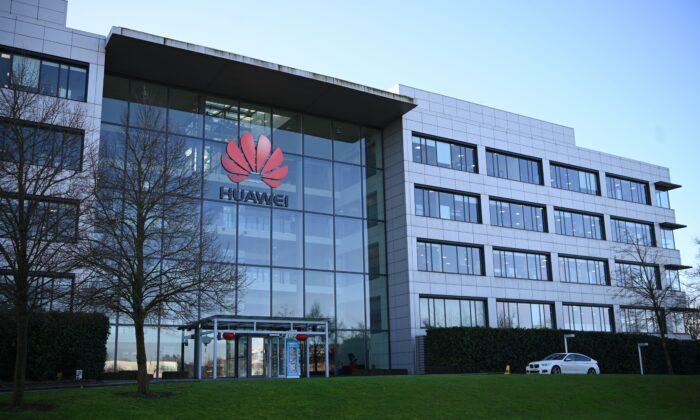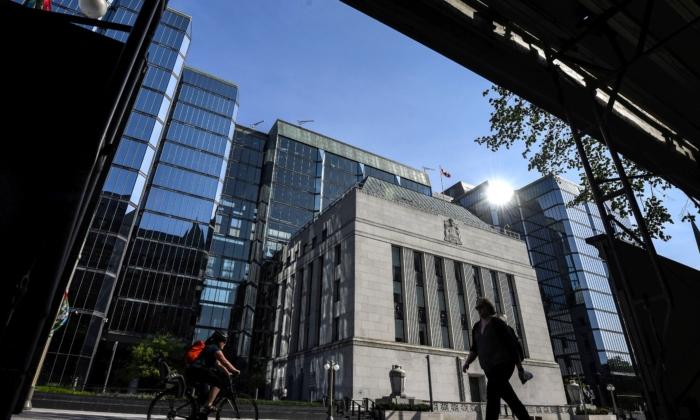OTTAWA—Canada was again reminded that if it allows Huawei in its 5G networks, its close relationship with the United States could change.
Retired U.S. Navy rear admiral Dwight Shepherd said at a recent defence conference that two countries can’t be allied more than Canada and the United States, but that intelligence sharing may be limited if Canada allows Huawei components in its 5G networks.
He said if Canada and the United States don’t have a common strategy for 5G and cyber, they’d be doing each other a disservice.
A theme that emerged at the Ottawa Conference on Security and Defence on March 4–5 is that national defence is a team sport and relationships matter.
“It goes back to trust,” Shepherd told the audience in Ottawa on March 5.
“We’re literally attached at the hip,” he said, adding that both countries will prosper if they can trust each other’s systems, and if they can’t, they’ll have a problem.
Shepherd said a government has to determine where the risk is coming from.
“You owe your citizens in your country some semblance of protection,” the former director of cyberspace operations for U.S. Northern Command / Norad told the gathering of defence and military professionals.
Canada is the only member of the Five Eyes intelligence-sharing alliance—which also includes the United States, Australia, New Zealand, and the United Kingdom—that has not yet rendered its verdict on Huawei for its 5G infrastructure
In January, the U.K. became the only Five Eyes member to permit Huawei access to its 5G network, limiting the involvement to 35 percent and only to non-sensitive areas.
But the United States doesn’t want Canada to grant any access at all. Washington sent its special representative for international telecommunications, Robert Blair, to Ottawa on March 9 for a meeting about Huawei and 5G.
‘Greatest Long-Term Threat to Security’
In explaining that the U.K. does not want to rely on a hostile vendor—Huawei—but seeks greater competition in its telecommunications space, U.K. lieutenant general Robert Magawon, Strategic Command deputy commander, was met with arguments noting the potential problems ahead.
Huawei has a part to play in the quest by the Chinese Communist Party (CCP) to supplant the international order and dictate new international norms, behaviours, and relationships, said Admiral Philip Davidson, commander of the U.S. Indo-Pacific Command.
“China represents the greatest long-term strategic threat to security in the 21st century,” he said, speaking on a panel with Magawon.
Control of innovation technology and infrastructure by the Chinese communist state, with Huawei’s participation in all aspects, isn’t just a military concern—it’s a sovereignty concern, Davidson said. Telecommunications used to be about reliability, but now it’s all about data and what can be done with it, he added.
Magawon said the U.K. is already reliant on Huawei for 4G, and the Chinese telecommunications giant won’t have anything to do with the dissemination of information on the Five Eyes network.
“We are concerned such that the U.K. has set up a Huawei analysis centre,” he added.
However, pushback is even coming from among the ruling U.K. Conservatives. Several dozen of British Prime Minister Boris Johnson’s fellow Conservatives plan to back an amendment to the Telecommunications Infrastructure Bill to extricate “high-risk vendors” like Huawei from 5G networks completely by the end of 2022, according to Reuters.
“Beijing’s approach is a pernicious one,” Davidson said, adding that the CCP’s use of coercion, influence operations, and outright military and economic threats bully other states to accommodate its interests.
In the realm of cyber, China is his biggest worry, said Canada’s Chief of Defence Staff General Jonathan Vance on March 4 during the day’s closing remarks.
‘Tool for State-Sponsored Espionage’
While Magawon said he feels confident in the U.K.’s ability to keep Huawei from compromising sensitive information, Shue Jane Thompson said at the defence conference that with 5G, it becomes more difficult to do so.
Thompson, vice-president and partner, global security strategy and growth at IBM, said it’s hard to give assurances on the testing, given that the amount required grows exponentially. Therefore, the onus falls on the supplier to confirm that the product is not compromised or being used by bad actors.
And that’s the issue with Huawei given the mounting evidence and allegations against the company for committing fraud, stealing information, and violating international sanctions.
“The reality remains that Huawei is a company beholden to higher laws that could—and most likely would—make it a tool for state-sponsored espionage,” wrote Johnathan Berkshire Miller in a Feb. 28 Macdonald-Laurier Institute editorial.
In the case of Canada’s Telus, which is planning to roll out its 5G network using Huawei components, the company is looking to diversify its suppliers, while keeping costs down.
Those who advocate using Huawei typically say that rejecting the firm would affect trade with China and incur heavier costs from other vendors of 5G technology.
Should the government decide to exclude Huawei, Telus could incur additional costs in transitioning away from their Huawei components.
However, should Huawei be cleared to participate in Canada’s 5G infrastructure, the cost looms large if a data breach occurs due to “backdoors” in Huawei components, not to mention the potential cost of losing customers who don’t trust the company.
Miller said Canada should not take a risk and “exude overconfidence at our ability to be able to hope for the best and mitigate the rest.”





